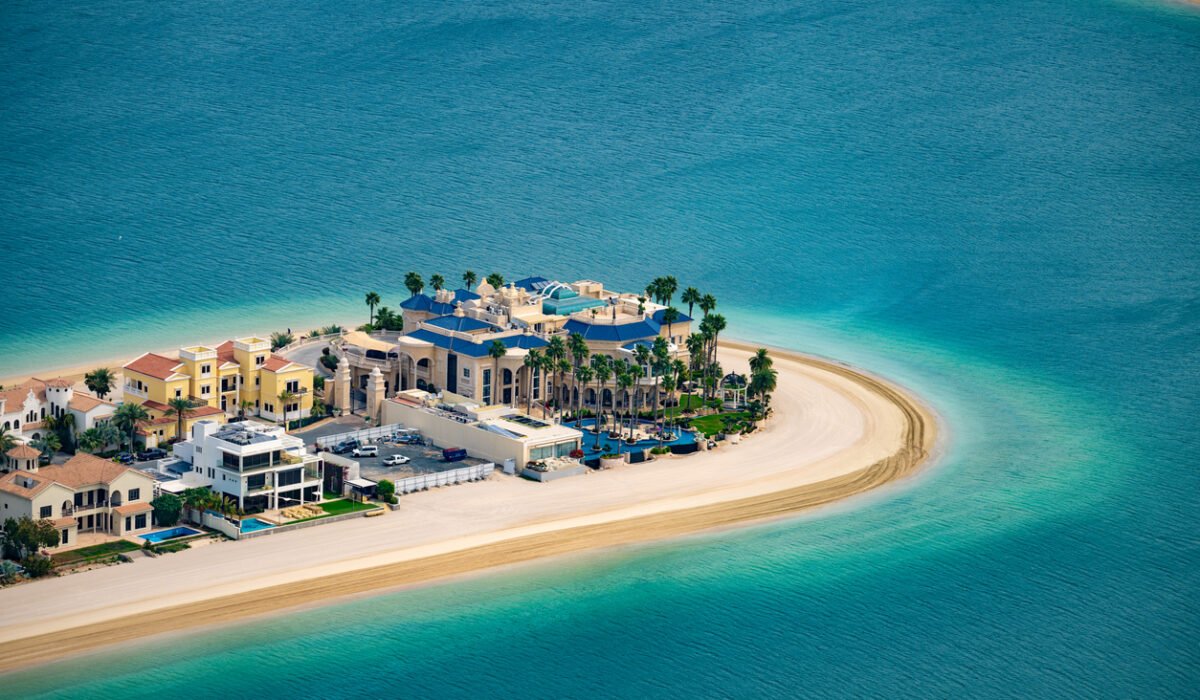Dubai’s Real Estate Pitch to Britain: Buy Now, Thank the Tariffs Later
In an unexpected twist of global economics, Donald Trump’s tariffs are helping drive a British buying spree in Dubai. The dollar — and with it, the UAE’s dirham, pegged to the greenback — has taken a beating. The result: the dirham is down roughly 8 percent against the pound since January, handing UK investors a built-in discount on Dubai real estate.
Developers in the Emirates aren’t wasting time. Heavyweights like Damac, Aldar, Sobha, and new entrants Binghatti and Danube are setting up London sales offices, directly courting British buyers priced out of their own overheated housing market.
“After years of decline, the UK is back on the map. This time, it’s not just about tax arbitrage — it’s currency math.”
“The currency makes a big difference,” says Rizwan Sajan, chairman of Danube. Binghatti CEO Muhammad Binghatti adds that he’s already seen a sharp uptick in British demand.
London Calling
The London outposts are more than symbolic. They’re designed to siphon capital from disillusioned UK homeowners now facing higher taxes and sliding property values. CBRE and Knight Frank report that wealthy Londoners are increasingly swapping townhouses in Chelsea for penthouses in Dubai, with the emirate suddenly ranking alongside Monaco, Italy, and Switzerland as a go-to destination.
Developers are tailoring the pitch accordingly. Binghatti is rolling out flexible payment plans and UK-only deals, while Damac is leveraging its tie-up with Chelsea FC to brand luxury residences in Dubai — a marketing play aimed squarely at British football fans with deep pockets.
British Buyers Surge
The strategy is paying off. In Q2 2025, British investment in Dubai homes surged 62 percent year-on-year, according to brokerage Betterhomes. For the first time since 2023, UK buyers overtook Indians as Dubai’s top foreign property investors.
“After years of decline, the UK is back on the map,” says one Dubai-based agent. “This time, it’s not just about tax arbitrage — it’s currency math.”
“After years of decline, the UK is back on the map,”
The Catch: Oversupply
Yet the boom comes with warnings. Fitch Ratings has projected a 15 percent price contraction in Dubai property stretching into 2026. Oversupply remains a looming threat: glittering towers keep rising, but the pool of buyers isn’t infinite. For developers, London represents both a sales hub and a hedge — a way to diversify beyond a domestic market that has already seen one spectacular bust.
Crossing Back the Other Way
Interestingly, the traffic isn’t one-way. Aldar’s UK arm, London Square, has quietly become a force, scooping up 15 land sites and launching six projects since late 2023. Modon and Damac are also exploring UK development ventures. Meanwhile, Knight Frank reports that wealthy Emiratis — historically a tiny fraction of London’s buyers — now account for 3 percent of the market, up from just 0.6 percent a year ago.
The irony is stark: Emirati developers are betting on Britain while British buyers are doubling down on Dubai.
Property as a Pressure Valve
For a Gulf economy traditionally tethered to oil prices, real estate has become both a pressure valve and a magnet for global capital. What Trump’s tariffs took from one sector, they may have gifted to another.
The big question is whether the current flood of British pounds into Dubai apartments is a short-term arbitrage play — or the early stages of a deeper economic coupling between the UK and UAE’s property worlds.
For now, one thing is clear: whether you’re buying a glass tower on Sheikh Zayed Road or a townhouse in Clapham, the exchange rate is calling the shots.

